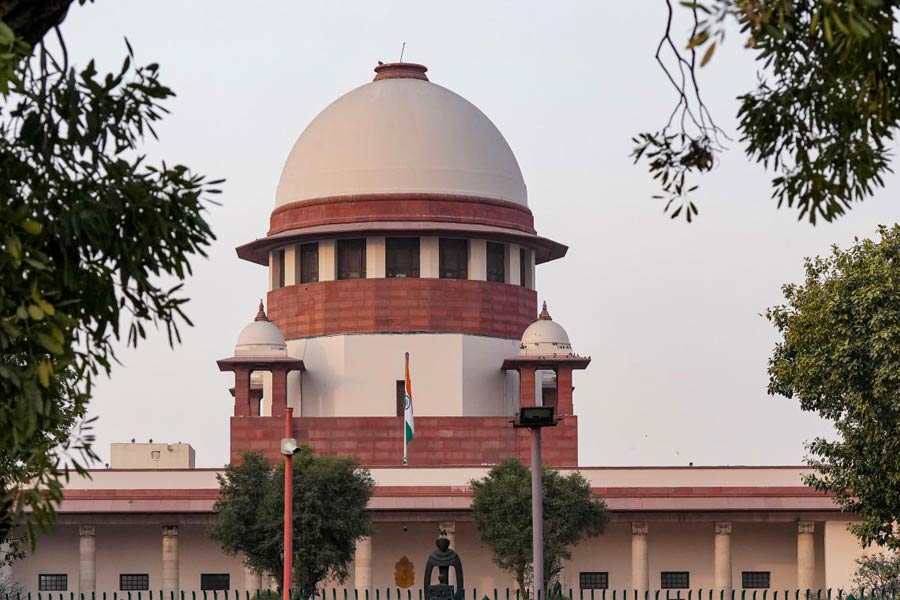In a major victory for mineral-rich states, the Supreme Court on Wednesday allowed them to seek dues from April 1, 2005 on royalty and tax on mineral rights and mineral-bearing land from the Centre in a staggered period of 12 years.
A nine-judge Constitution bench headed by Chief Justice DY Chandrachud said the argument for prospective effect of July 25 is rejected.
Pronouncing the verdict on behalf of the bench, CJI Chandrachud said by a 8:1 majority, this court had on July 25 answered the questions referred to it and held that legislative power to tax mineral rights vests with states.
He said after the pronouncement of the July 25 verdict, the assessees sought prospective effect of the decision and the matter was listed on July 31 to decide the effect of verdict.
The Centre has opposed the demand of states for refund of royalty levied on mines and minerals since 1989, saying it will impact the citizens and the PSUs will have to empty their coffers by Rs 70,000 crore according to initial estimates.
"The submission that the Mineral Area Development Authority Act (MADA July 25 verdict) be given prospective effect is rejected," the bench said and laid down conditionalities for payment of dues by the Centre and mining companies, including Public Sector Undertakings, to the states, "While the states may levy or renew demands of tax, if any pertaining to Entries 49 and 50 of List II of seventh schedule of the Constitution, in terms of law laid down in the decision of MADA (July 25 verdict). The demand of tax shall not operate on transactions made prior to April 1, 2005," the bench said.
Entry 49 of List II deals with taxes on lands and buildings while Entry 50 deals with taxes on mineral rights subject to any limitations imposed by Parliament by law relating to mineral development.
The bench also comprising justices Hrishikesh Roy, Abhay S Oka, JB Pardiwala, Manoj Misra, Ujjal Bhuyan, Satish Chandra Sharma and Augustine George Masih, said “the time for payment of demand of tax (by states) shall be staggered in instalments over a period of 12 years commencing from April 1, 2026”.
The top court directed that the levy of interest and penalty on demands of taxes by states from the Centre and mining companies made before the period of July 25, 2024 shall stand waived for all the assessee.
CJI Chandrachud said this verdict will be signed by eight-judges of the bench who by majority decided the July 25 judgement giving the state’s power to levy taxes on mineral rights.
He said Justice Nagarathna will not sign Wednesday's verdict as she had given a dissenting view in the July 25 verdict.
Senior advocate Rakesh Dwivedi, appearing for Jharkhand, said there still remains one issue that the state’s Act to collect royalty on minerals and mineral-bearing land, which was set aside needs to be upheld.
"Unless the Act is declared valid, we cannot collect taxes on minerals and mineral-bearing land. Please list it expeditiously before the appropriate bench," Diwvedi, who appeared along with senior advocate Tapesh Kumar Singh for Jharkhand, said.
Dwivedi was referring to the decision of Ranchi bench of the Patna High Court that had struck down Section 89 of the Mineral Area Development Authority Act of 1992 vide its judgment dated March 22, 1993.
Section 89 of the Mineral Area Development Authority Act empowered the state government of then undivided Bihar to levy tax on not only mineral-bearing land but also land used for commercial or industrial purposes.
CJI Chandrachud assured Dwivedi that he will issue directions on the administrative side for urgent listing of the matter.
During the hearing on July 31, the Centre and mining companies have opposed the demand of states for refund of royalty collected since 1989.
The July 25 verdict had overruled a 1989 judgement and subsequent decisions of the apex court, which held that only the Centre has power to impose royalty on minerals and mineral bearing land.
Some opposition-ruled mineral rich states then sought refund of royalty levied by the Centre and taxes from the mining companies since the 1989 verdict.
The matter of refund was heard on July 31 and order was reserved.
Except for the headline, this story has not been edited by The Telegraph Online staff and has been published from a syndicated feed.











